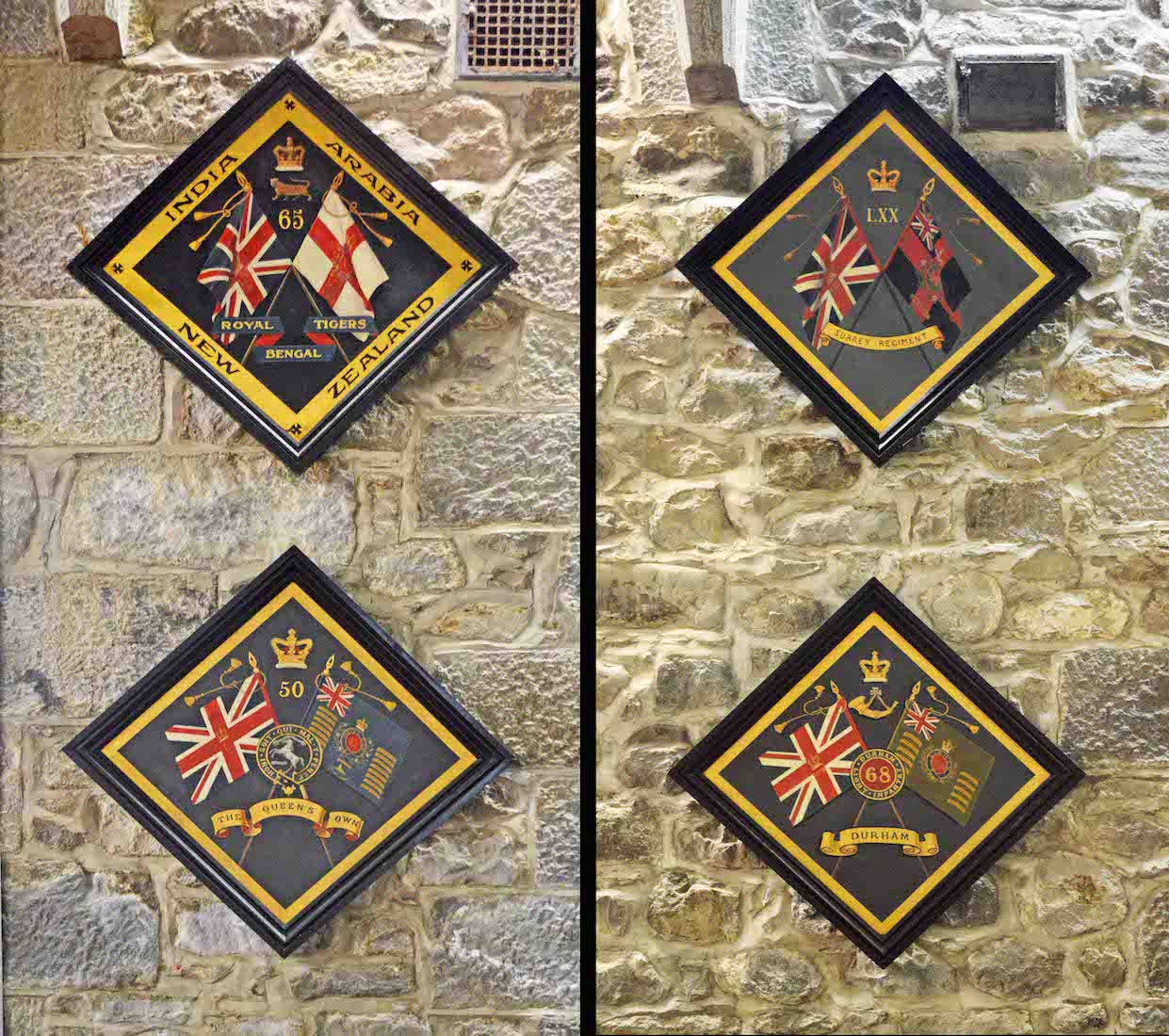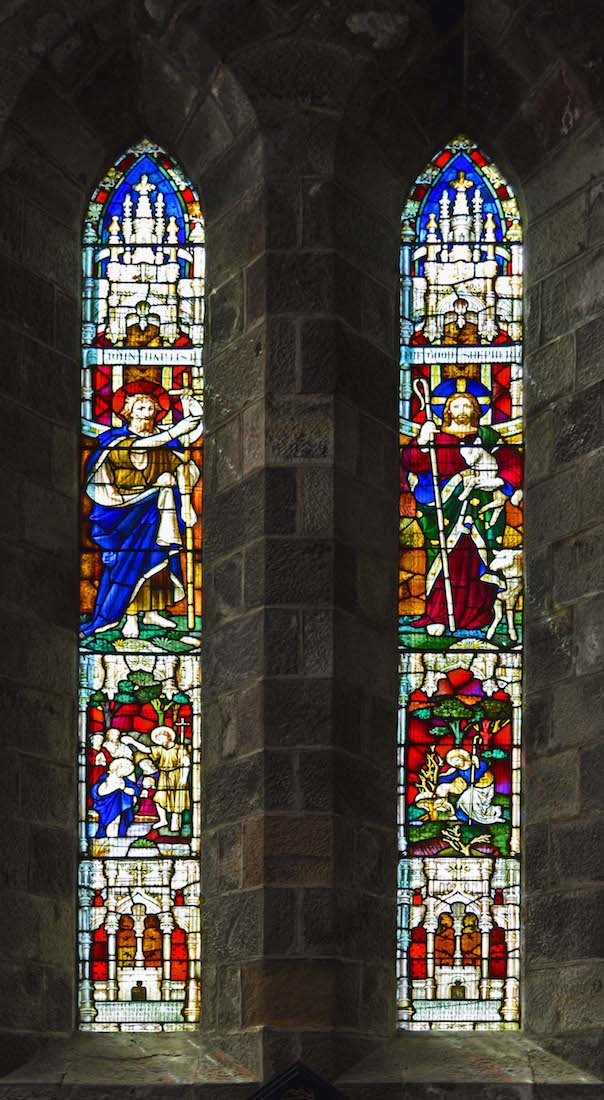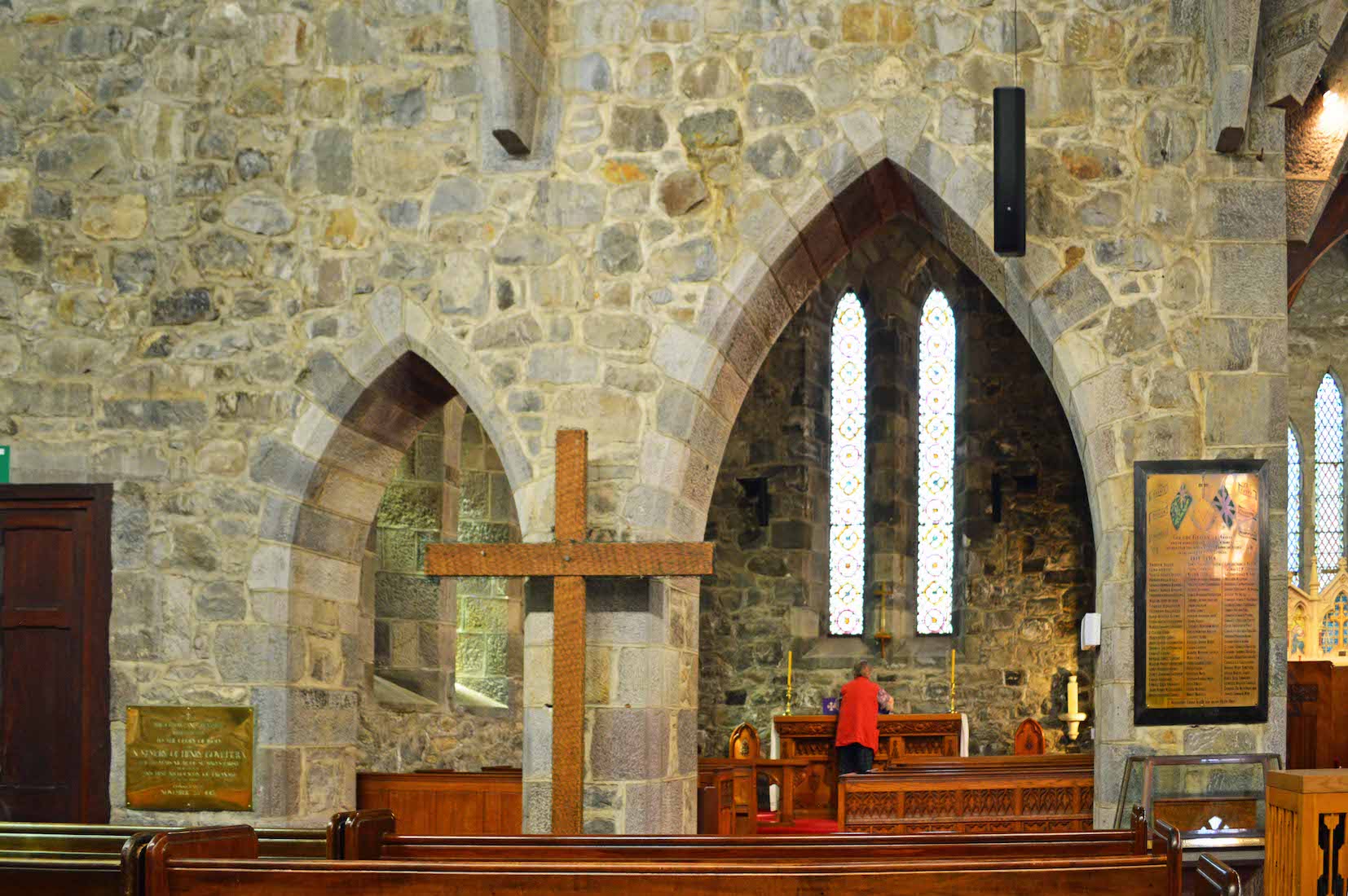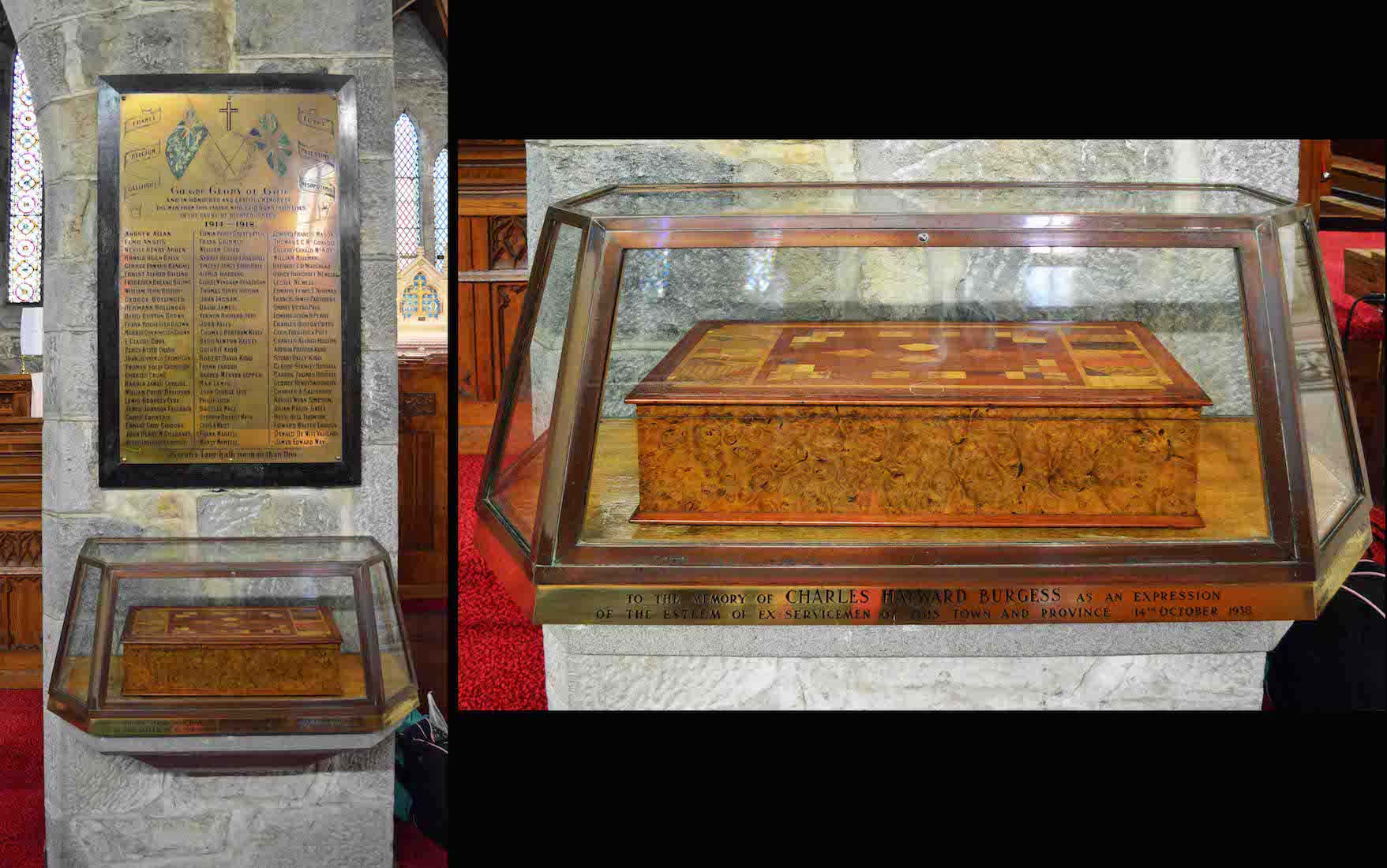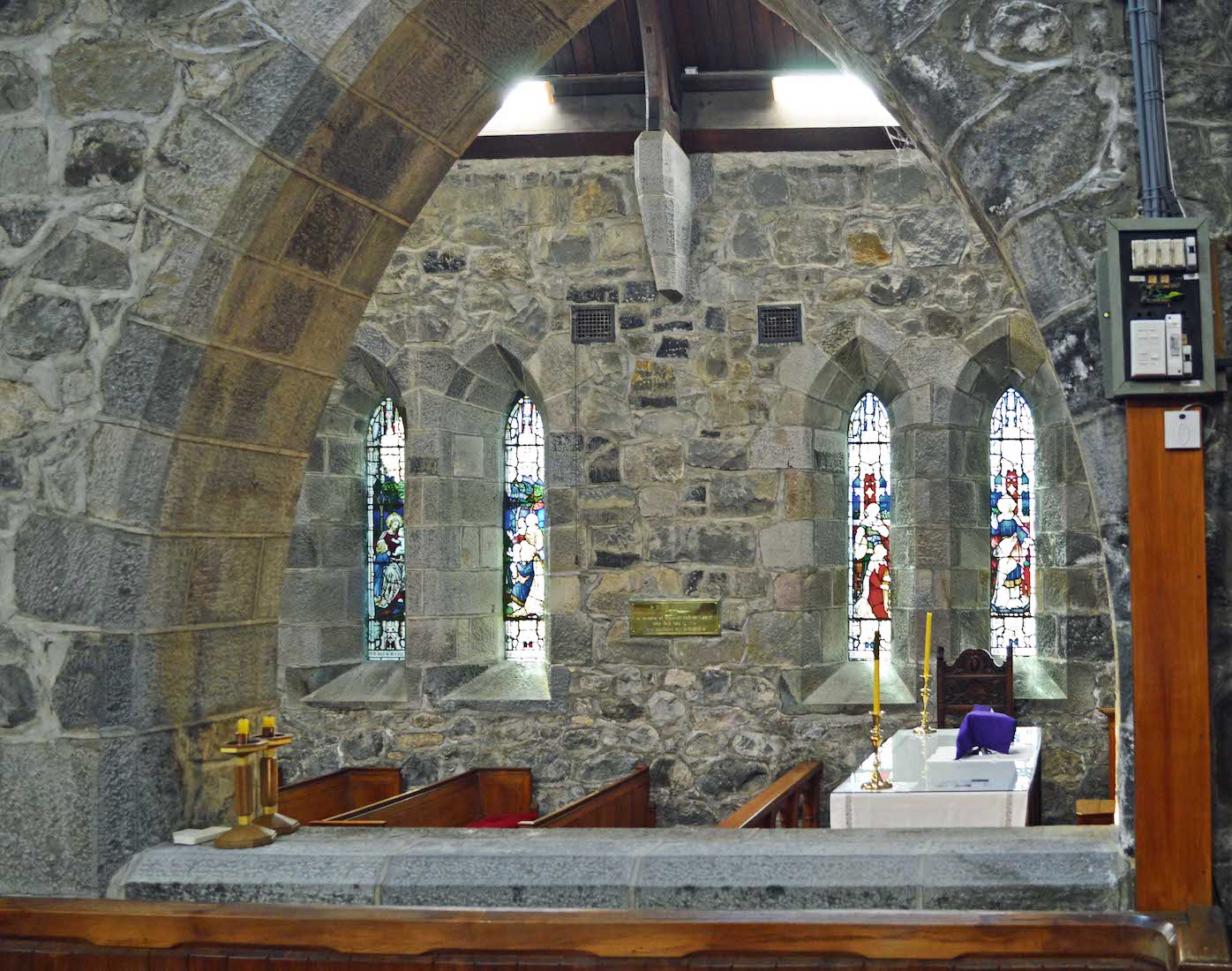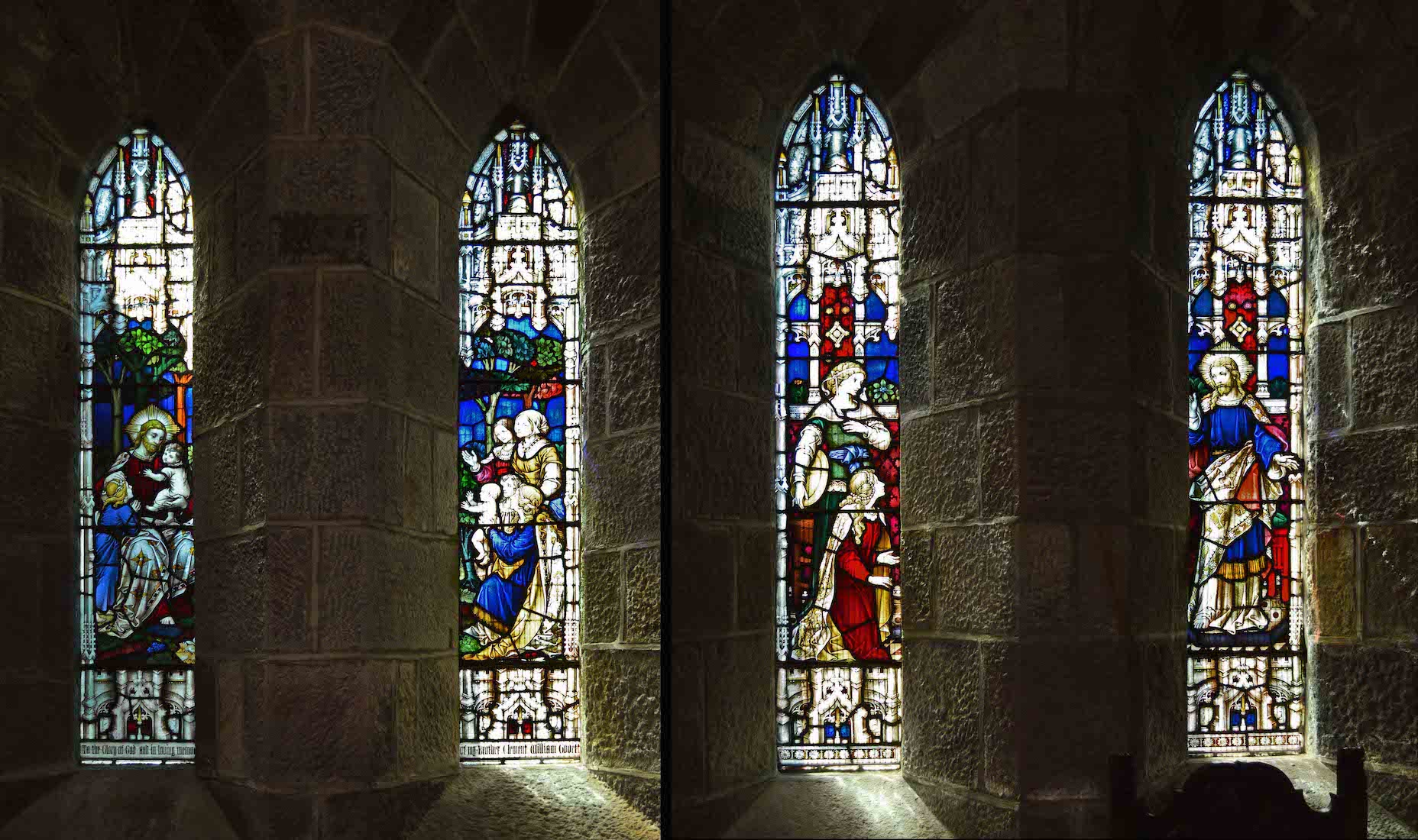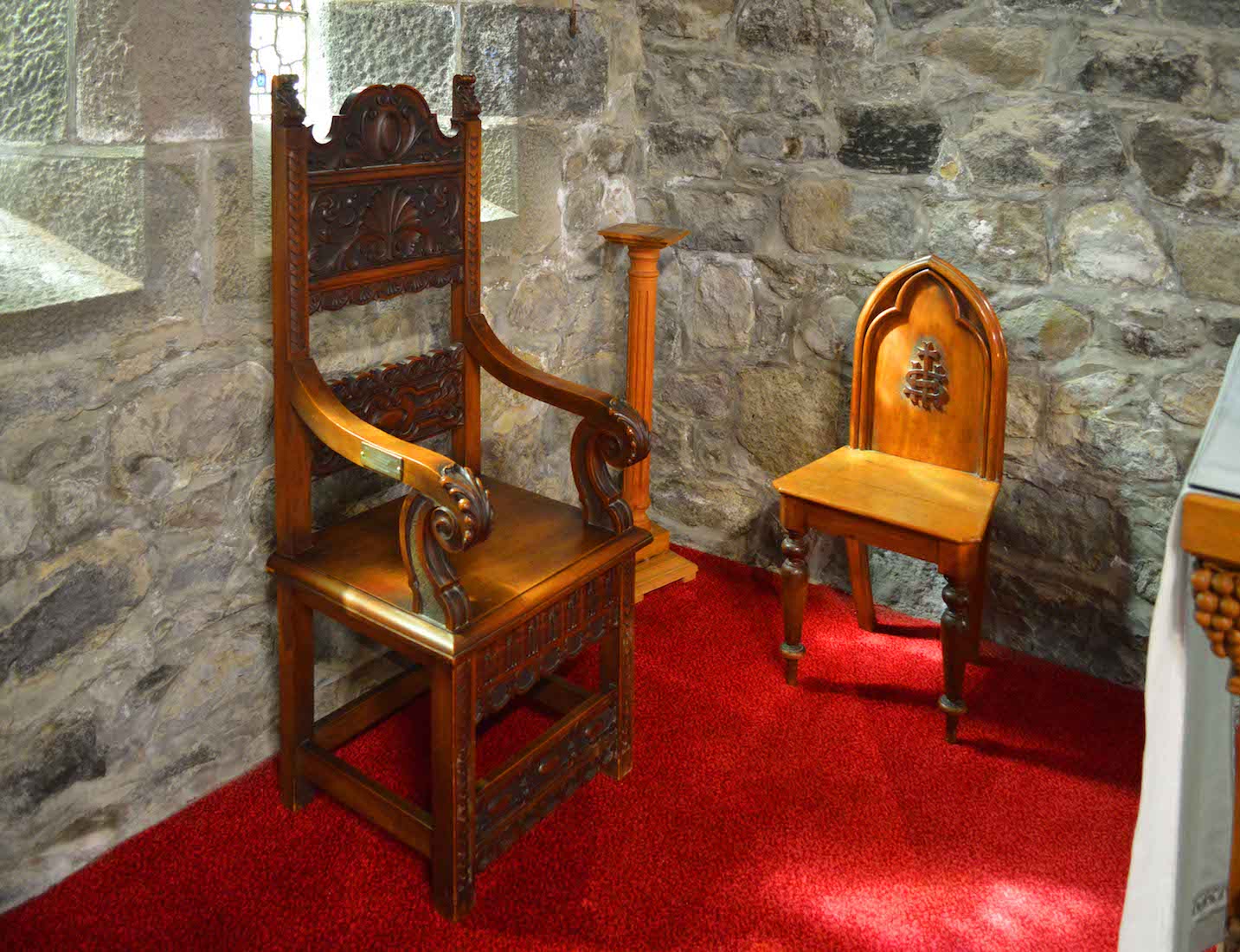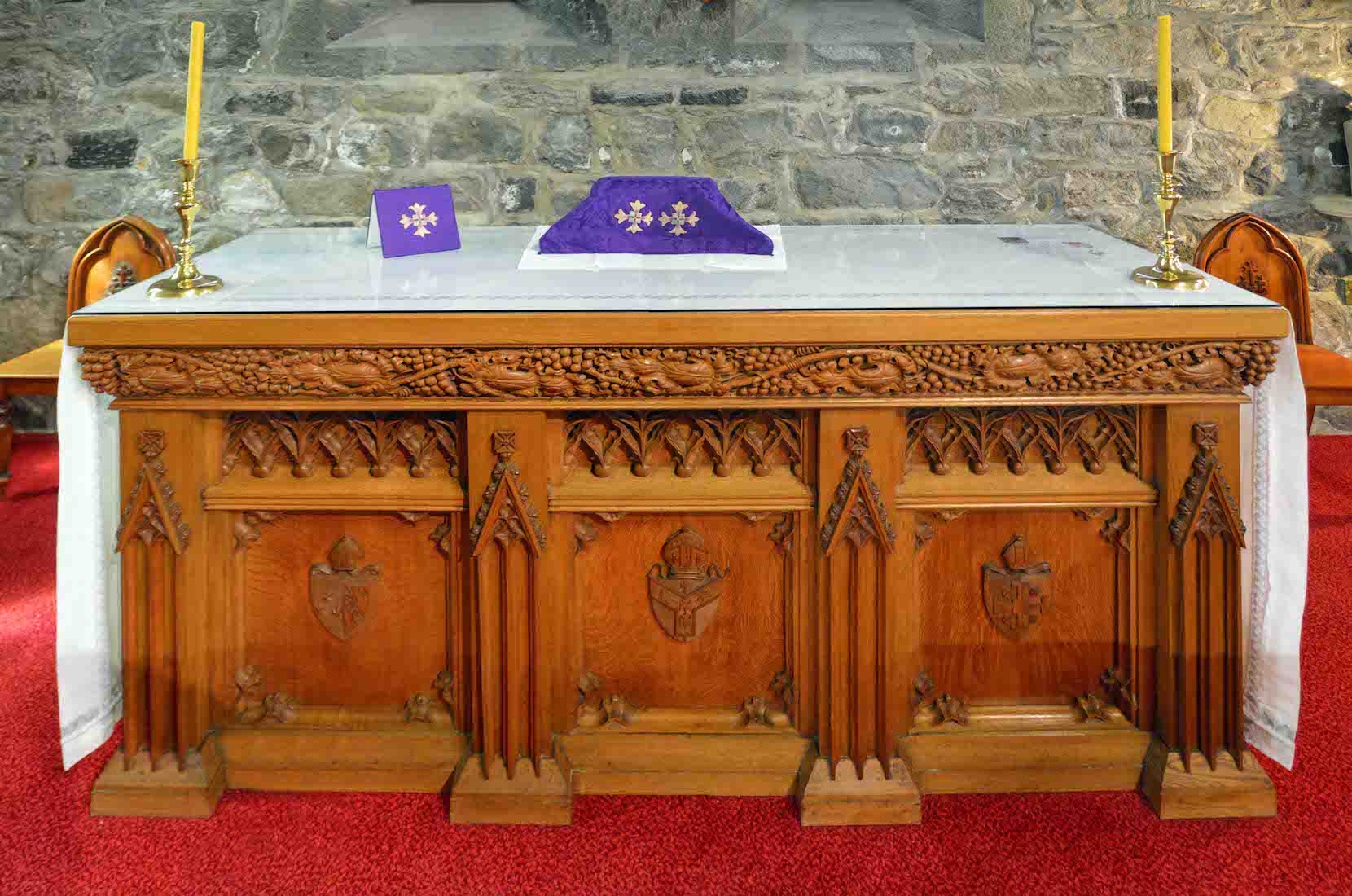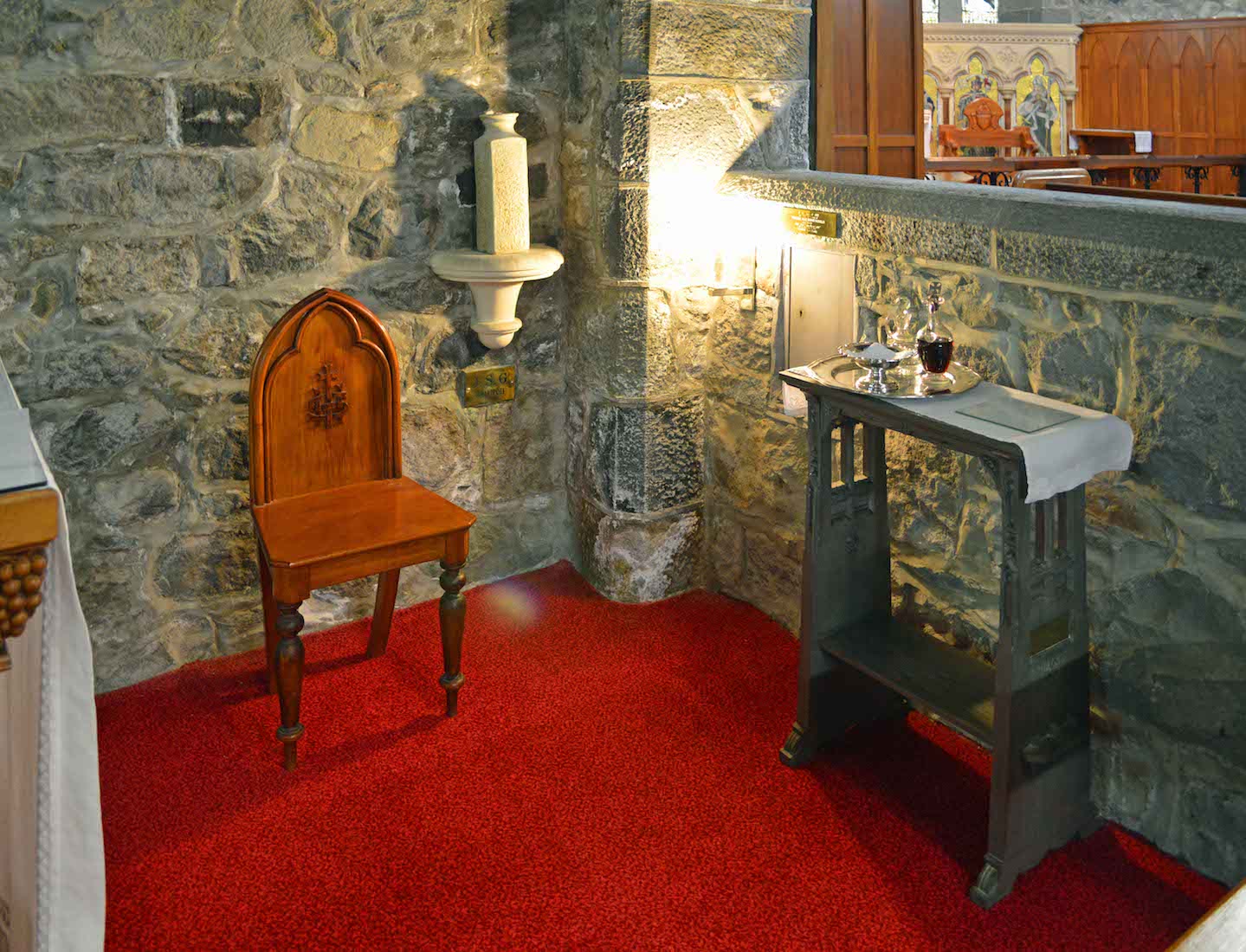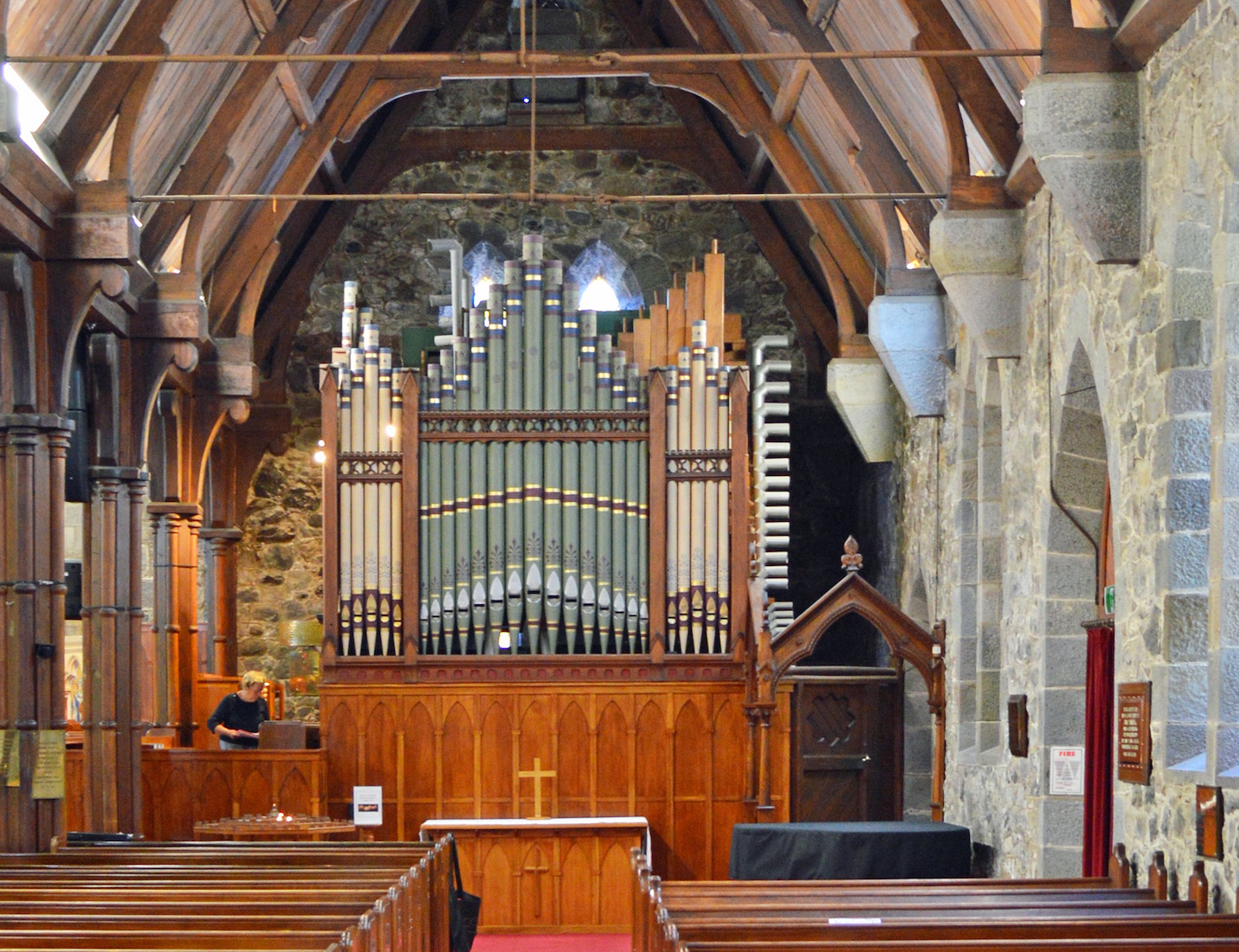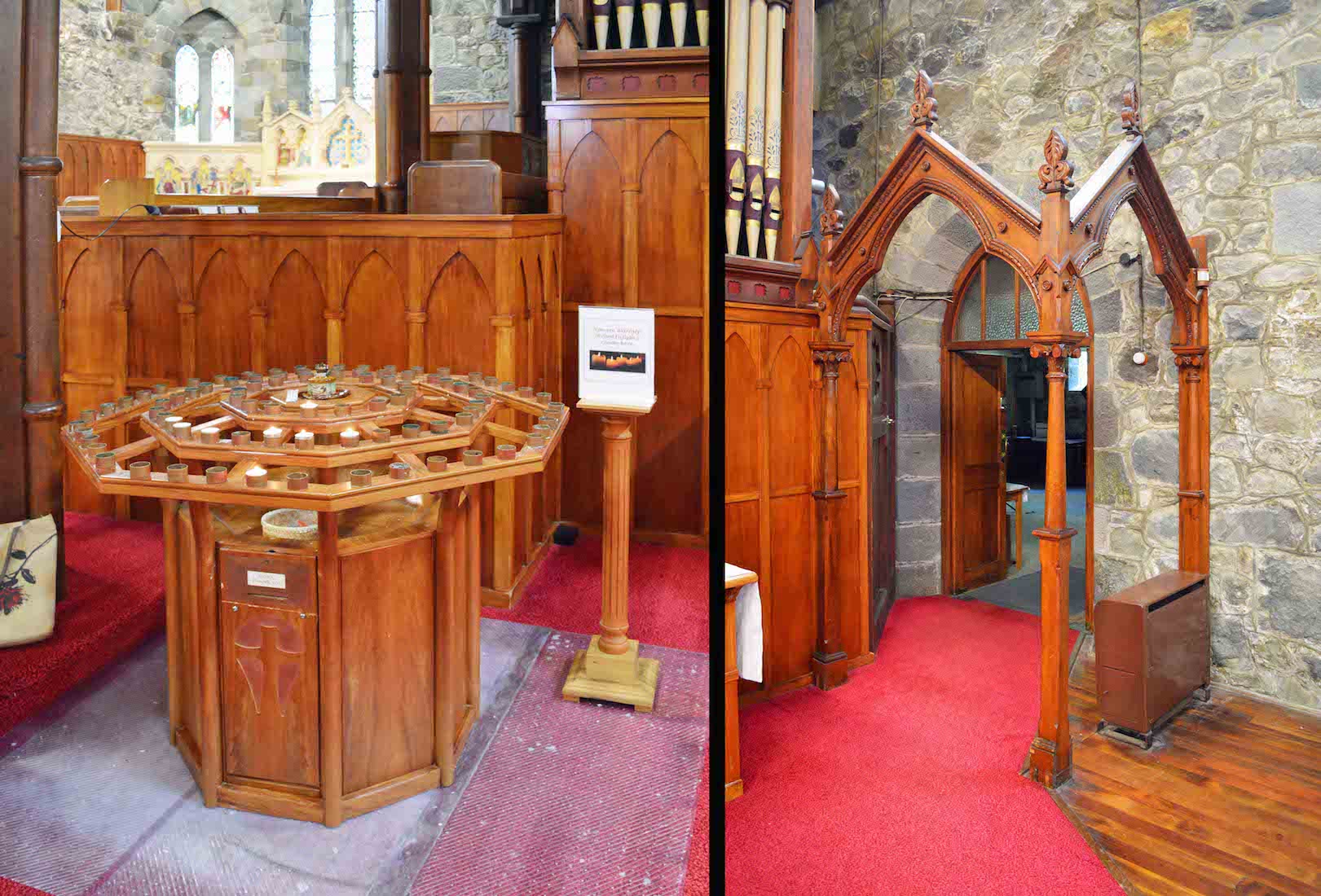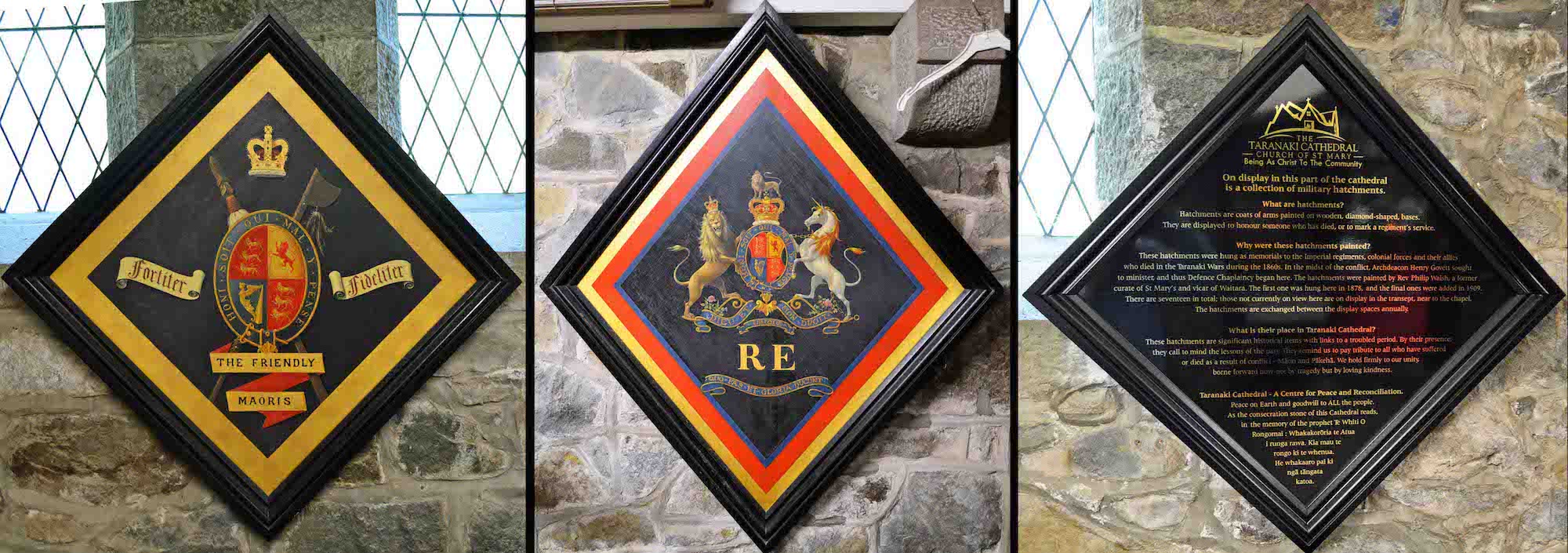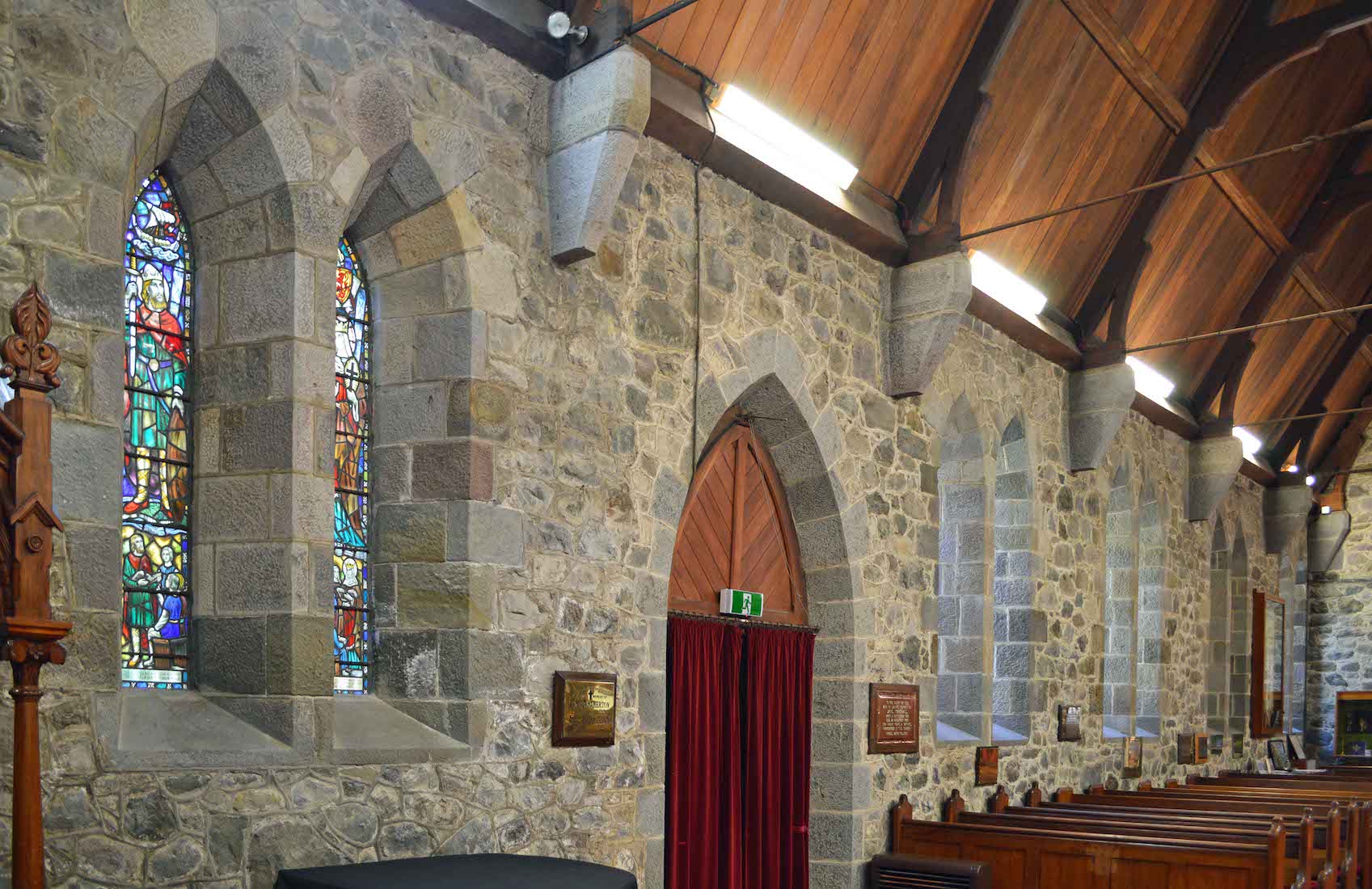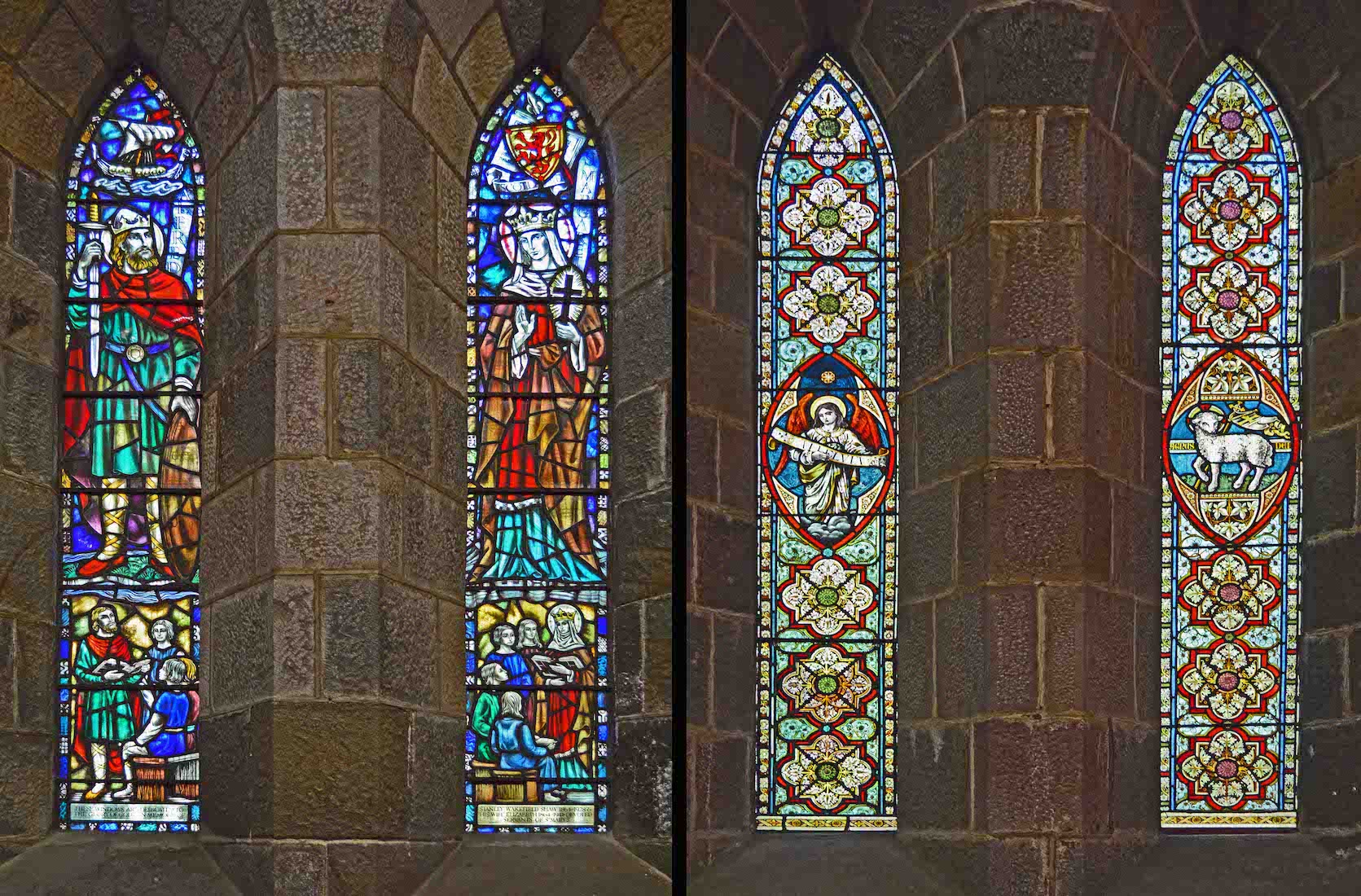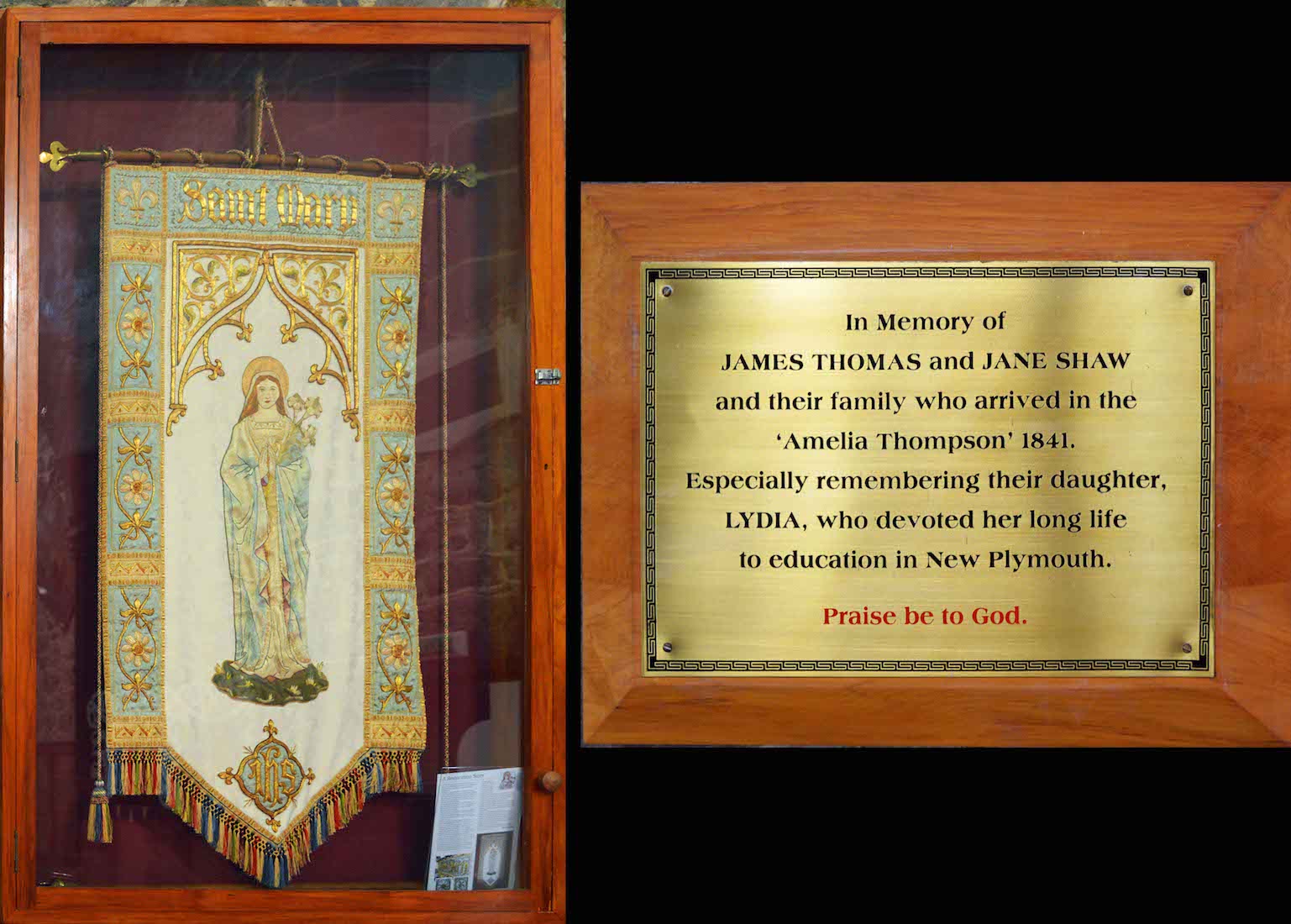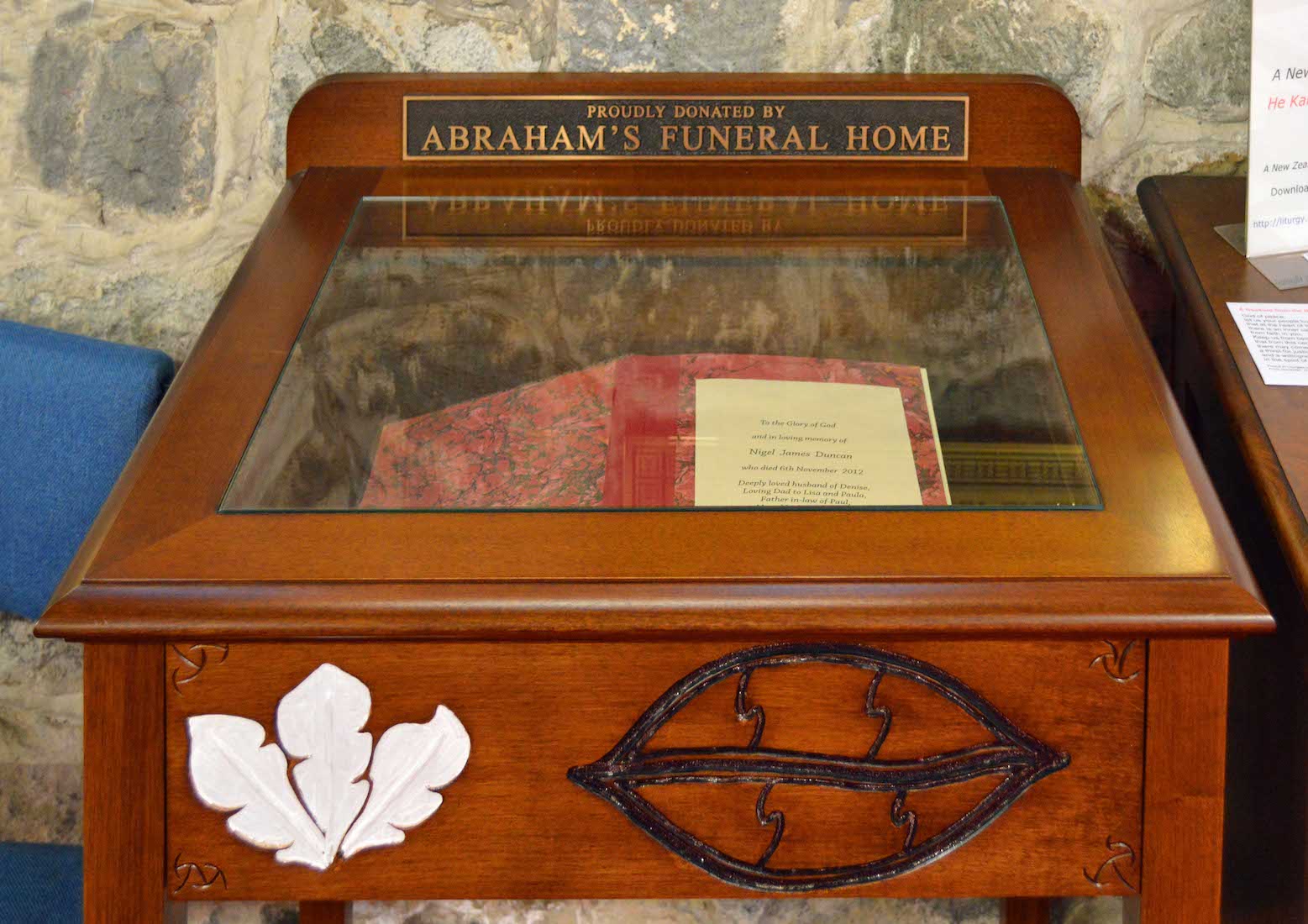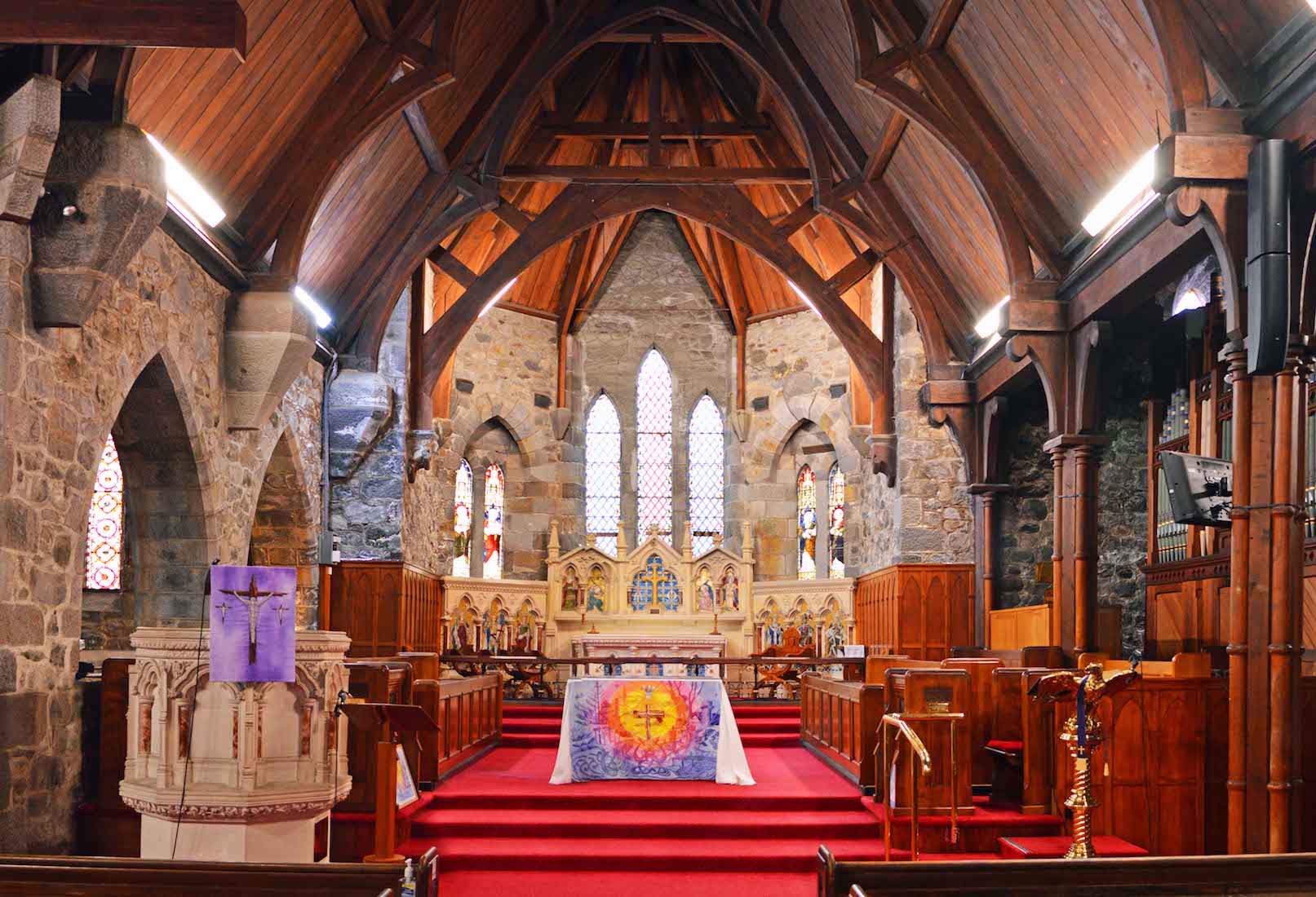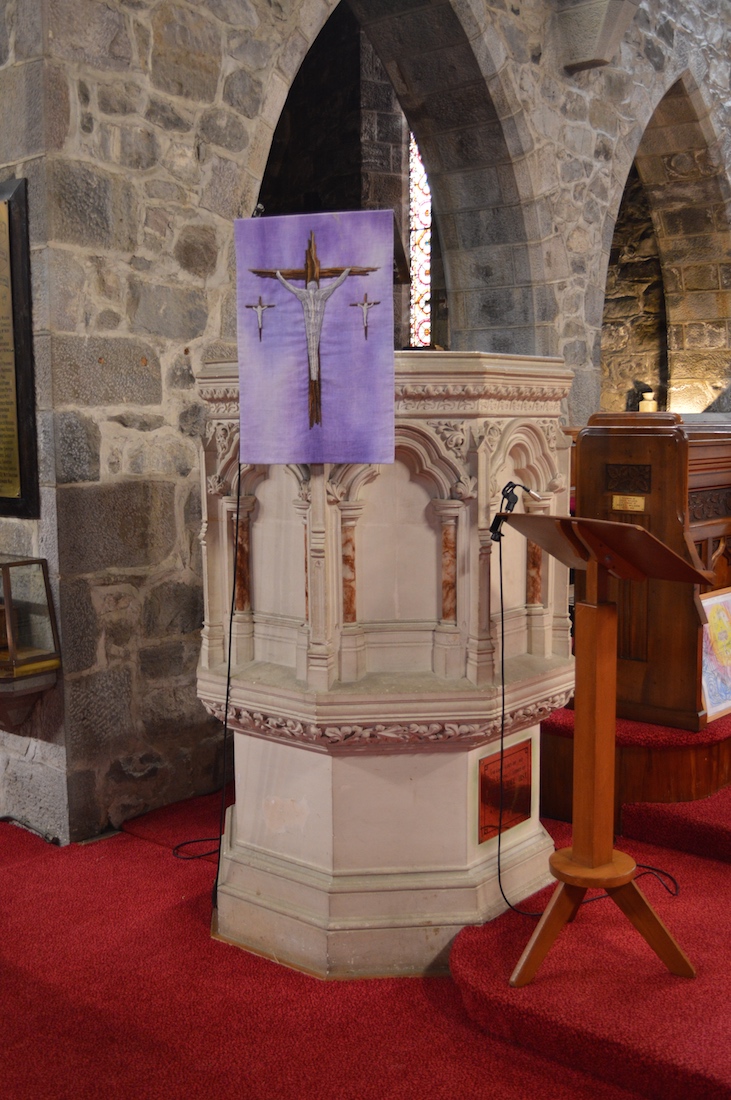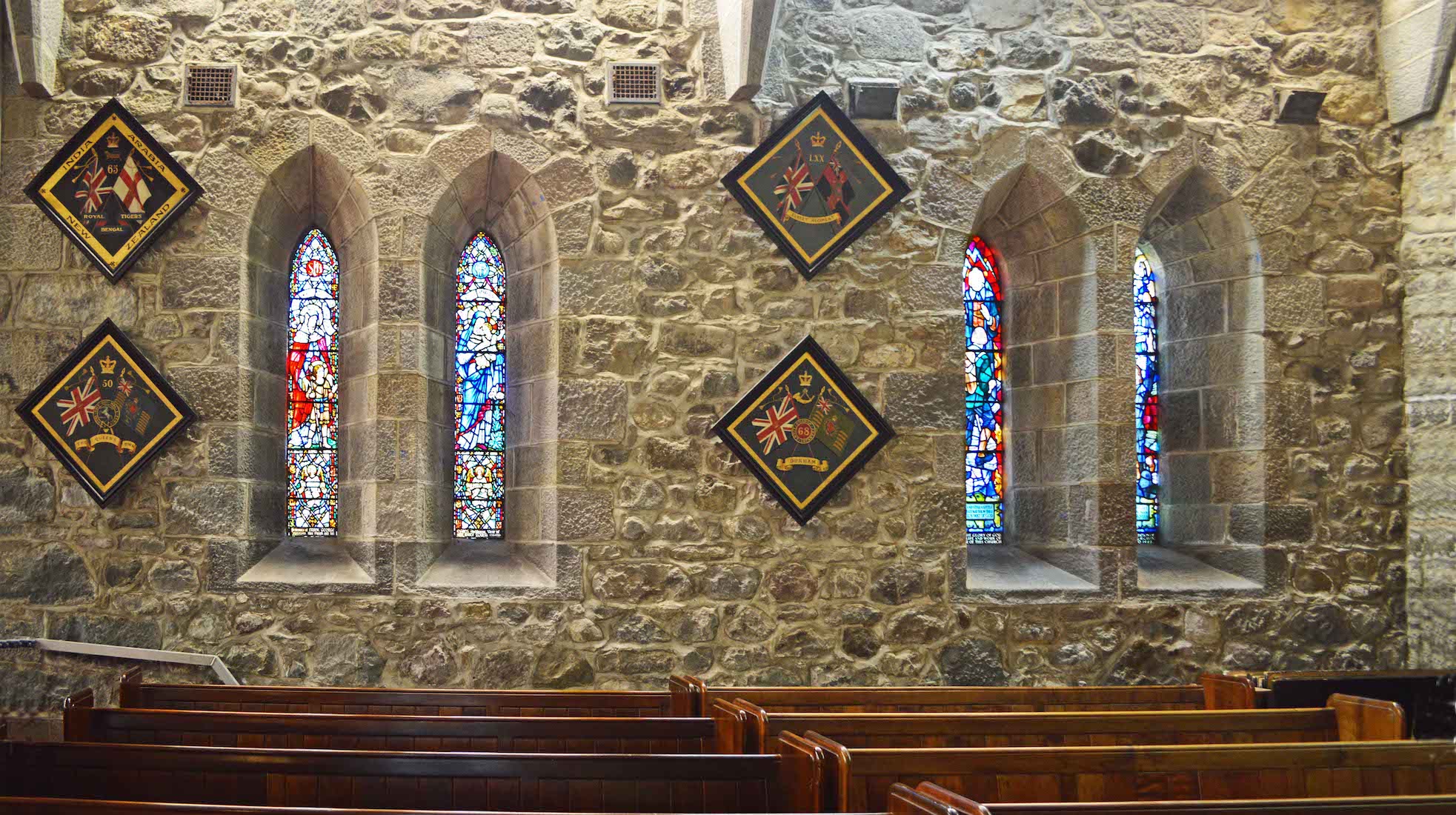
The arrangement of regimental hatchments between the windows continues on this wall. This building is so old: the windows are set in small deeply recessed slits – like the arrow-slits of an old castle! PLAN
42. TRANSEPT WEST WINDOWS
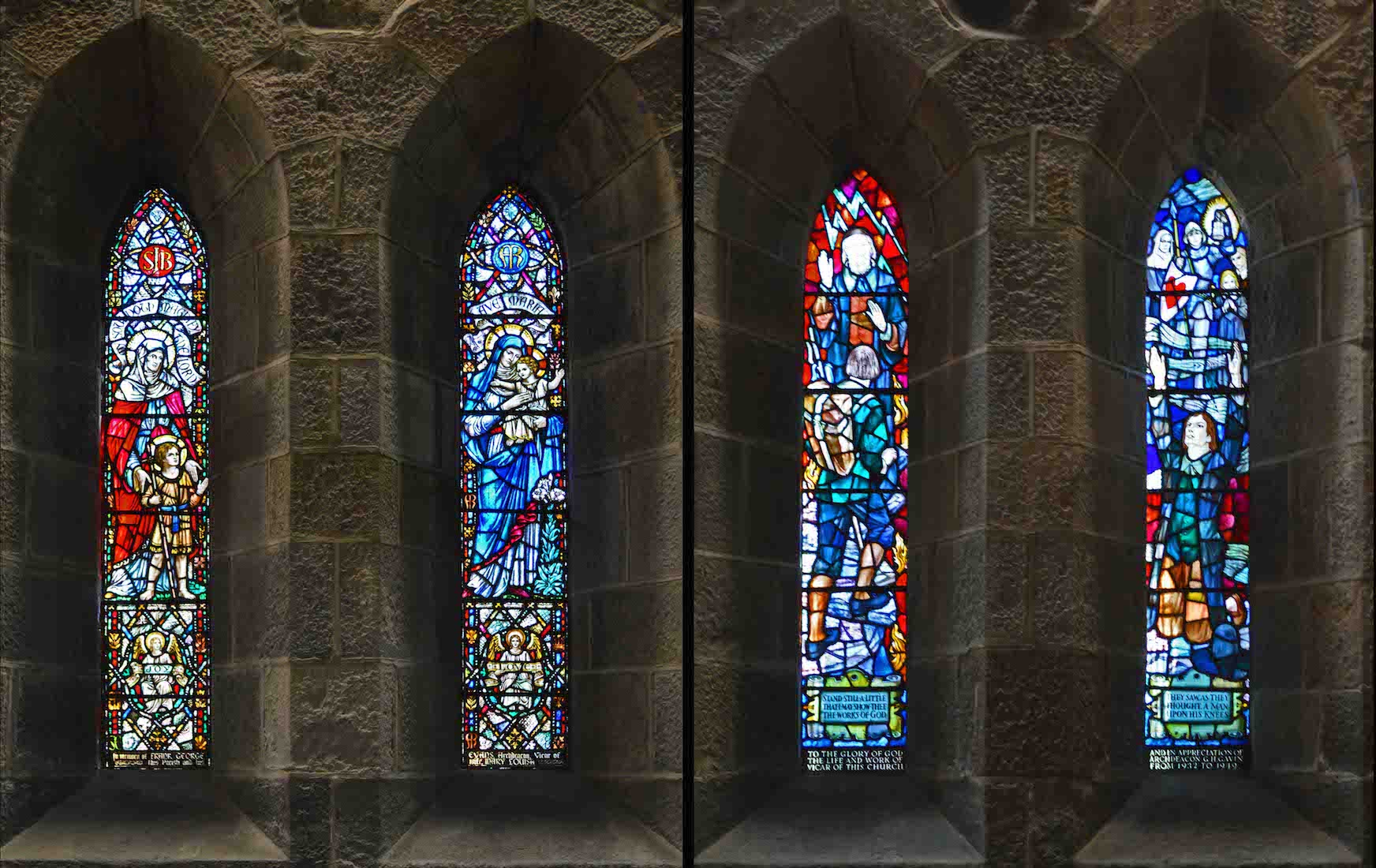
The two windows at left: • ‘My soul doth magnify the Lord; Joy’ – Mary and the young Jesus; • ‘Ave Maria; Love’ – Madonna and Child. The two windows at right are based on Bunyan’s ‘Pilgrim’ Progress’. They have text relating to Pilgrim: • ‘Stand still a little that I may show thee the works of God’ ; • ‘They saw as they thought. A man upon his knees’.
43. REGIMENTAL HATCHMENTS
The writing on the hatchments: • 65, India, Arabia, New Zealand, Royal Tigers Bengal; • 50, The Queen’s Own; • LXX Sydney Regiment; • 68, Durham.
44. TRANSEPT NORTH WINDOWS
The two windows in the North wall show John the Baptist with a cameo of John baptising Jesus, and Jesus as the Good Shepherd with a miniature of Jesus rescuing a lamb from a thorn bush.
46. MEMORIAL BOX
The plaque is in memory of the men of this Parish who gave their lives in the 1914 – 1918 War. The names are listed. The displayed box is in memory of Charles Howard Burgess, and was given in 1938.
47. ALL SAINTS CHAPEL
The chapel in the North East corner of the Cathedral is All Saints Chapel. This Chapel dates from 1915 and is dedicated to Archdeacon Govett’s memory. Cathedrals need a worship space for smaller gatherings, and daily prayers are said here.
48. CHAPEL WINDOWS
The Chapel windows are in two pairs. The left hand pair show Jesus ministering to the little children. The pair at right appear to show Jesus interacting with Mary and Martha.
49. CHAPEL FURNITURE
Two fine quality carved oak chairs stand in the North East corner of the Chapel. The smaller chair has the IHS symbol carved on the back – the symbol for ‘Jesus’. The larger chair is more ornate, and has a plaque attached to one arm.
50. CHAPEL ALTAR
The oak altar and pews were carved by a former choir member, W. Andrews, in memory of Bishop Selwyn. The three panels across the altar depict from left Selwyn’s personal arms halved with those of the Diocese of NZ, the arms of Canterbury, and the arms of Lichfield Cathedral, where Selwyn moved on leaving NZ.
51. CHAPEL AUMBRY
To the right of the altar, a white light burns continually. It signifies that consecrated bread and wine are safely kept here, so that these may be shared during the week. Holy oils are also stored here.
52. ORGAN PIPES
We now move across the ‘crossing’ to the other side of the nave. We shall return shortly to the chancel and sanctuary. We notice here a stand of organ pipes. These are part of the 1905 George Croft and Son pipe organ. This is the largest intact working pipe organ in the Taranaki region. On Sundays, the Eucharistic elements are distributed from this South altar.
53. VOTIVE CANDLES
Below the organ pipes is a votive candle stand donated by local firm Jones and Sandford, and by Bishop Philip Richardson’s family. Many candles are lit here each week, and it is a focus for prayer. The doorway leads to an adjacent vestry.
54. MORE REGIMENTAL HATCHMENTS
There are more of these regimental hatchments than can be displayed at one time. These ‘spares’ in the vestry show the plaque of The Friendly Māoris, a non-square plaque labelled RE, and an interesting explanation of military hatchments.
55. NAVE SOUTH WALL
Leaving the vestry, we return to the South nave. We observe pairs of stained glass windows, the South exit door, various plaques, and some larger hanging object at far right.
56. SOUTH WINDOWS
Many of the pairs of windows on the South wall are plain. Here the windows at left depict King Alfred and Queen Margaret; the windows at right are largely abstract in design, but have an angel with text ‘Alleluia’, and the Lamb and Flag with text ‘Agnus Dei’ (Lamb of God). [
57. BANNER AND PLAQUE
Near the South West corner is a framed banner of Saint Mary, and a plaque remembering early immigrants James Thomas and Jane Shaw who arrived in 1841, and their daughter Lydia.
58. MEMORIAL BOOK
Nearby stands a cabinet containing a Memorial Book, donated by Abraham’s Funeral Home. In many cathedrals the Memorial book records the names of those buried on site, and the pages are turned daily.
60. PULPIT
In 1902 the original wooden pulpit was replaced with the Mount Somers stone memorial to Thomas and Grace Hirst, which had been designed to match the reredos of the high altar.


